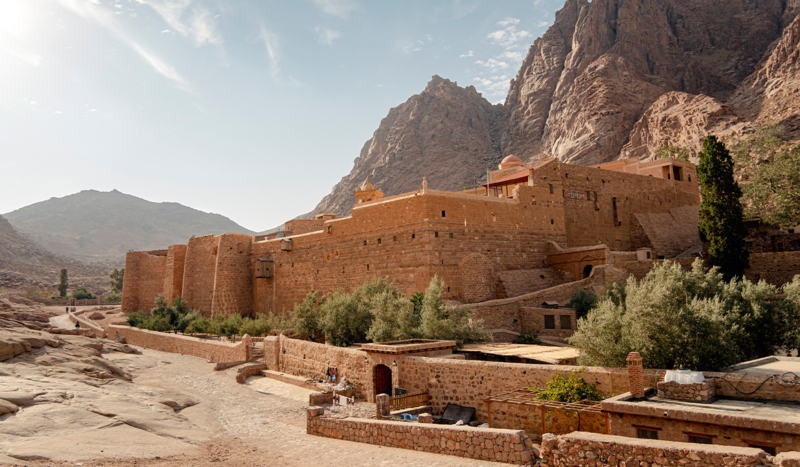
St. Catherine's Monastery / Adobe Stock
An Egyptian appeals court has ruled that the 6th-century Orthodox Monastery of St. Catherine on Mount Sinai is property of the Egyptian state, though the monks’ presence there is still allowed with restricted access to certain buildings, according to the news agency Fides.
Located at the site where Moses encountered the burning bush, the monastery is home to libraries, manuscripts, relics, and other historic treasures managed by 20 monks in the Greek Orthodox Patriarchate of Jerusalem. It is also a UNESCO World Heritage landmark.
The Ismailia Court ruled May 28 that “the monastery’s assets are effectively confiscated and placed under the management of the Egyptian state,” and the ruling “effectively strips the monastery of its autonomy,” which it has held for 15 centuries, according to Fides, the news agency of the Dicastery for Evangelization.
“The decision controversially concludes the long-standing legal offensive by the Egyptian state against the monks of St. Catherine’s — an effort that has been ongoing, in varying intensity, since the time of the Muslim Brotherhood-led government, with the goal of bringing the monastery under state control,” Fides reported.
The monks are allowed to be in the monastery only under conditions put forth by the new state owner, and they have decried the ruling as a “de facto expulsion,” Fides reported. In contrast, some state officials have argued that the ownership transfer helps to protect the monastery’s cultural heritage, with one archaeologist Abdel Rahim Rihan arguing “that the monastery’s real estate falls under cultural heritage laws and that the implementation of the court decision ensures its promotion for the benefit of ‘world heritage and the monks,'” Fides reported.
According to a May 30 report from Al-Monitor, Egyptian President Abdel Fattah al-Sisi told Greek Prime Minister Kyriakos Mitsotakis in a phone conversation that Cairo was “fully committed to preserving the unique and sacred religious status of Saint Catherine’s monastery, and ensuring it is not violated.”
The Greek Orthodox Patriarchate of Jerusalem said in a statement May 30 that it was “deeply troubled” by the ruling and that the monastery is still a part of the Patriarchate’s ecclesiastical jurisdiction.
“It is our sacred obligation to ensure that Christian worship continues on this holy ground, as it has done for 17 centuries. We condemn any infringement on the physical or jurisdictional status of our places of worship,” the Patriarchate said, adding that it “stands strongly for the right to worship safely and freely. This requires access and safe passage for those making pilgrimage to our sites. It is a matter of freedom of worship.”
According to Fides, an international campaign is underway to reverse the ruling.
The Greek Orthodox Patriarchate stated that it “acknowledges the official statements issued yesterday by the Egyptian authorities, assuring the sanctity and wholesome integrity of our monastery and the refrain from any infringement over it.”
The patriarchate said it will carefully review the court decision, monitor the situation, and, if necessary, “will condemn and act upon any encroachment on the Monastery or infringement over access to this holy site.”
